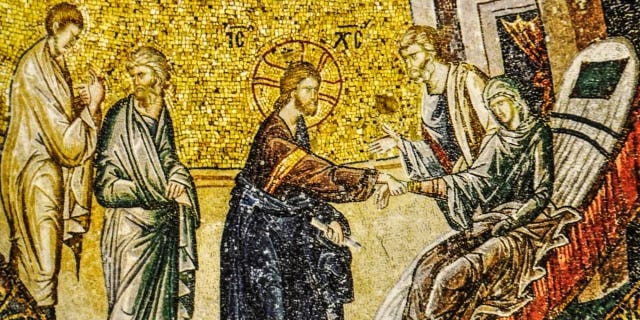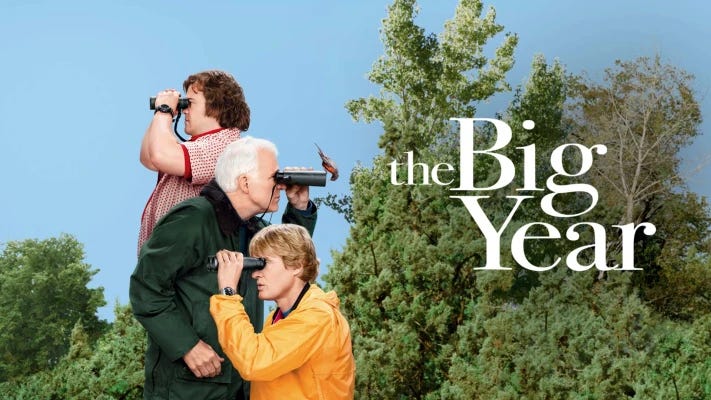Where he is
In his book Being Disciples, Rowan Williams says Christian discipleship is a matter of following Jesus around.
That is what the first disciples did. They asked Jesus “where are you staying?” (Jn. 1:38-39) and then went to stay at his house. Discipleship is following Jesus not only spiritually but physically—seeking to “be where he is” and “be in the same place as the Master.” Discipleship is keeping the company of Jesus.
But this entails a second reality: being in the company of the people whose company Jesus keeps. Williams writes:
Being where Jesus is means being in the company of the people whose company Jesus seeks and keeps. Jesus chooses the company of the excluded, the disreputable, the wretched, the self-hating, the poor, the diseased; so that is where you are going to find yourself… It is once again a reminder that our discipleship is not about choosing our company but choosing the company of Jesus…
Consider Mark 1 and 2 alone:
Jesus takes the disciples to the bed of Simon Peter’s mother-in-law, who is dying.
He heals a paralytic, who cannot walk.
And just to make sure everyone is on the same page, he tells us why he came: not for the healthy, but for the sick (Mk. 2:17).
He tells us where we can find him.
Communion, not inclusion
If Williams is right, this raises important questions about our own lives with God. All of us want to “be with God.” But if we are not with these forgotten sorts of persons, one might also wonder whether we are with Jesus. If we are not seeking their company, are we seeking Christ’s?
To be clear, this is not to mold Jesus into some sort of “social progressive;” nor to read back into the Gospels some 21st century notion of “inclusion” or “equality;” nor to say Jesus is not with the elite, the capable, or the self-sufficient; nor to guilt us toward the doors of the soup kitchen.
It is simply to highlight that discipleship is about communion—being with God—and that in order to be with God, we must keep the company he keeps.
Expectancy
Following Williams’ vision of discipleship, what sorts of people will we become? We will take on a posture of expectancy or alertness. We will become like the Desert monks—who waited for hours outside the cell of their Master for a “word” to fall from his lips. We will become like the birdwatcher—who sits in still attentiveness, sometimes all day, waiting for something to happen.
This expectancy and alertness applies to God’s word and his sacraments—he will always show up in those. But it also applies to the persons we encounter every day—especially (but not only) other Christians. Williams writes:
the first thing we ought to think of when in the presence of another Christian individual or Christian community is: what is Christ giving me through this person, this group?’… ‘What is Jesus Christ giving me here and now?’
Where do we watch for God?
Do we expect his image and presence in a psych ward?
Do we expect his image and presence in the rural poor?
Do we expect his image and presence in dying, mainline Protestant churches?
Do we expect his image and presence in our political enemies?
Certainly, all of us expect Christ to be present in some people. But among what sorts of people do we not expect his presence?
We tend to sort our encounters into two types of persons: (1) people who can give me something, and (2) people who can’t. People who I need, and people who need me. But if Williams is right (and if the Gospels are true) then I should expect God to be more present with and in the latter—not less.
Before the birth of my son, I looked for Jesus in a particular type of person: older, well-educated, probably male. Someone like King Saul in the Old Testament: strong, smart, competent, good-looking, tall.
While I still believe God is present in such people, honestly, I just don’t find them as interesting as I once did. I would rather watch for God in my son’s autistic friends; or in the physically disabled man who bags my groceries; or in the people at the party who aren’t wearing the right clothes. Because as Stephanie Phillips says, “Jesus didn’t give the disabled his pity, but he sure as hell gives them his presence.”
This is the company he keeps.






I become more thankful for these after every new one I receive.
Wow Jordan, thanks for the shout out and even more thanks for, as usual, a thought-provoking and gorgeous post!